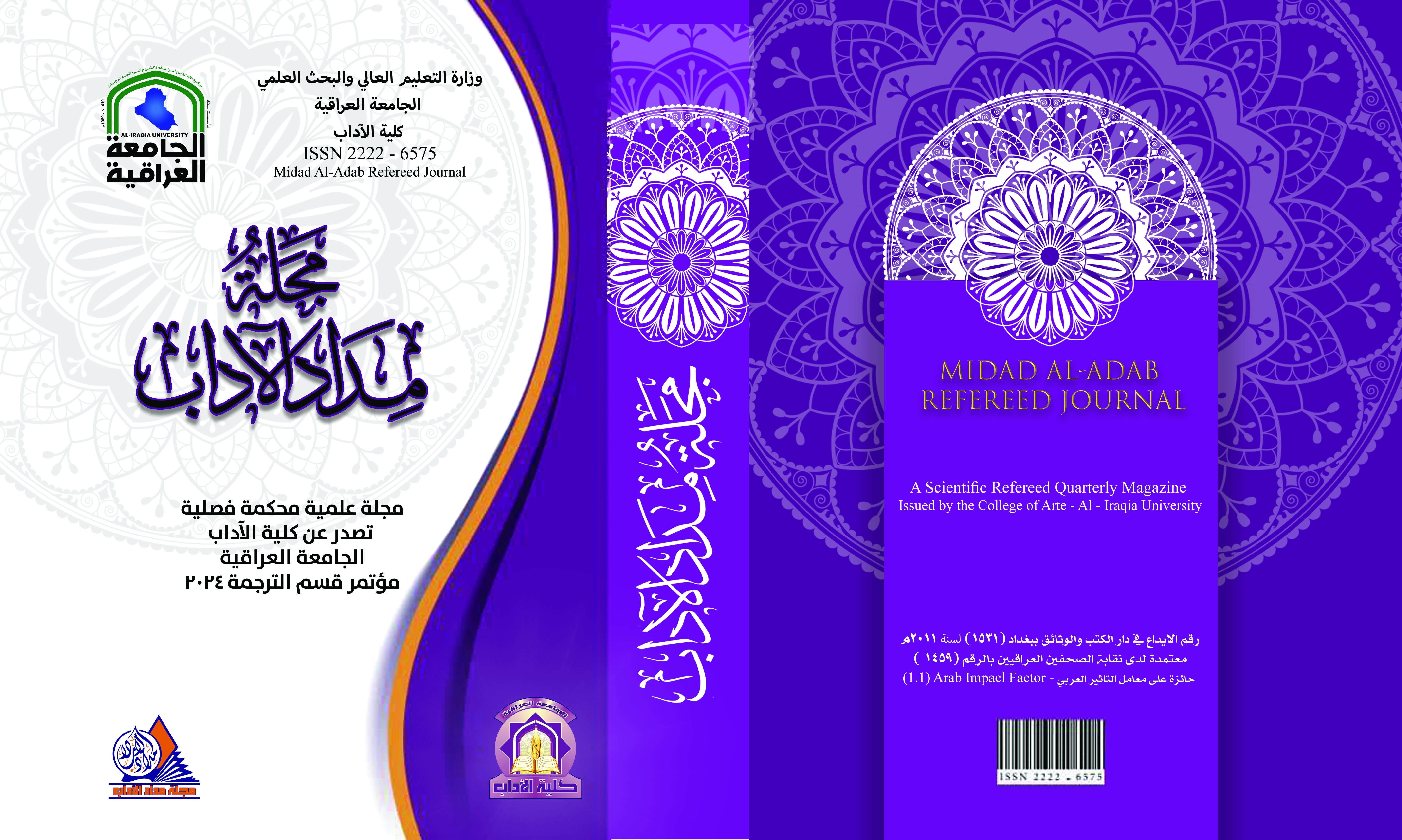A socio-cognitive Pragmatic Analysis of Intercultural Communication in Legal Discourse
A socio-cognitive Pragmatic Analysis of Intercultural Communication in Legal Discourse
DOI:
https://doi.org/10.58564/ma.v14iخاص%20بمؤتمر%20قسم%20الترجمة%202024.1399Keywords:
Keywords: Socio-cognitive Approach, Dynamic Model of Meaning, Salience, Relevance, Intercultural legal interaction.Abstract
Since its emergence ‘pragmatics’ is perceived as one sided, either ‘attention-oriented’ (cognitive) or ‘intention-directed’ (socio-cultural). However, recently there has been some tendencies that pragmatics should be viewed as concerning with both individualistic and societal sides. This paper sheds light on male and female non-native speakers’ intercultural communication in English legal discourse, from a socio-cognitive pragmatic point of view. The study Examines the effect of different sociocultural backgrounds on the communicative process in courtroom intercultural interaction and explains the nature of that effect. The study is also interested in investigating the positive and negative aspects of communication in legal interaction and providing an accurate insight for the reasons behind such aspects. The study adopts Kecskes’s (2008) Dynamic Model of Meaning to analyze 24 discourse segments taken from the famous YouTube channel ‘Caught in Providence’. To this end, the study uses a qualitative method to data analysis; associated with a nonexperimental observational methodology. The study concludes that the communicative process in legal intercultural interaction is not as smooth as it might seem, and when human beings interact in a particular language that is not their first language, the rhythmic interaction between linguistic and nonlinguistic set of conventions seem to be lost to some extent.
Downloads
Published
Issue
Section
License

This work is licensed under a Creative Commons Attribution-NonCommercial-NoDerivatives 4.0 International License.








